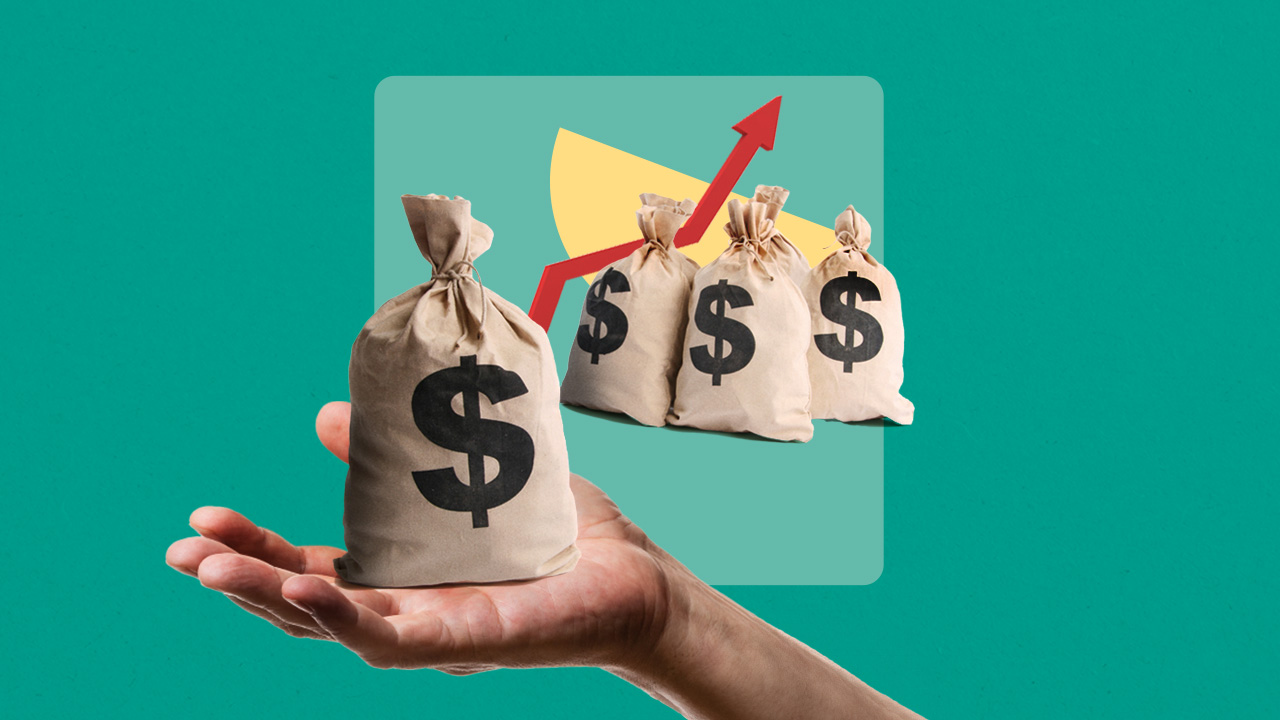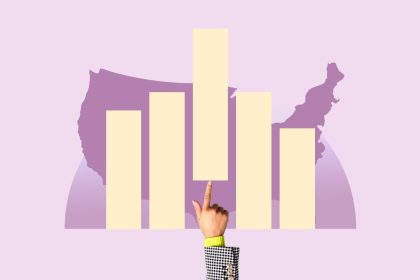Key takeaways
- Unsecured loans aren’t backed by collateral, making them a higher risk for lenders
- Interest rates vary, ranging from 7 percent to 75 percent APR
- With good credit, you could secure a low interest rate on an unsecured loan — between 8 percent and 10 percent APR
Interest rates on unsecured business loans can range anywhere from 7 percent to 75 percent APR, depending on the type of loan you choose, the lender and your business’s credit profile. It’s possible to get low interest rates on an unsecured business loan, such as 8 percent to 10 percent APR, if your business has good credit.
But lenders typically offer higher rates for unsecured versus secured business loans since unsecured loans aren’t backed by collateral. These loans pose a higher risk to lenders because they can’t immediately seize business assets to repay the loan in case of default.
Below, you’ll find current unsecured business loan interest rates for different unsecured business loans and what to look for when comparing loans.
Compare unsecured business loan interest rates for unsecured business loans
Get an idea of the interest rates you’ll find based on the type of unsecured loan and lender.
| Loan type | Average interest rates |
|---|---|
| Term loans | Bank: average 7.71% to 8.98% APR Online lender: 9.00% to 75.00% APR |
| Business lines of credit | Bank: average 7.43% to 9.18% APR Online lender: 7.00% to 30.00% APR |
| Business credit cards | 17.74% to 35.99% APR |
| SBA loans | Fixed rate: 13.50% to 16.50% Variable rate: 11.50% to 15.00% |
| Invoice factoring | 0.5% to 4% factoring fee |
| Merchant cash advances | Factor rate: 1.04 to 1.32 |
Unsecured term loans
Some unsecured term loans come with either a low loan amount or short repayment terms to offset the risk of not having business assets tied to the loan.
Since features differ among lenders, compare rates and terms that these lenders set for their term loans.
| Lender | Interest rates | Details |
|---|---|---|
| Bank of America | From 7.50% APR | Loan amounts from $10,000 1- to 5-year terms $150 origination fee |
| Fora Financial | Not stated | Loan amounts from $5,000 to $1.5 million Terms up to 16 months Eligible for additional funding after 60% repaid |
| National Funding | 1.10+ factor rate | Loan amounts from $5,000 to $500,000 18-month terms 1% to 3% origination fee 600 min. credit score |
| PNC Bank | Not disclosed | Loan amounts from $20,000 to $100,000 2- to 5-year terms 1% origination fee |
| Triton Capital | 8.99% to 74.99% APR | Loan amounts from $10,000 to $250,000 6- to 36-month terms 1% to 2.5% origination fee |
| U.S. Bank | From 8.49% APR | Loan amounts up to $250,000 Terms up to 7 years |
Unsecured business lines of credit
A business line of credit provides a way for businesses to access funding as expenses crop up. The lender sets a credit limit based on the business’s ability to repay, and the business repays any amounts drawn within a set repayment term, like one to two years.
Some banks will set a lower maximum credit limit, like $100,000, for unsecured lines compared to secured lines. Take a look at what traditional banks and online lenders offer for this type of unsecured loan.
| Lender | Interest rates | Details |
|---|---|---|
| Bank of America | From 10.00% APR | Credit limits from $10,000 Renews annually No draw fees |
| Bluevine | From 6.20% Simple interest | Credit limit up to $250,000 6- to 12-month repayment term |
| Credibly | Not disclosed | Credit limit up to $300,000 Offered through lending partners May pay an origination fee |
| Fundbox | 4.66% to 8.99% amortized weekly fee | Credit limit from $1,000 to $150,000 12- to 24-week terms Accessible to fair credit borrowers |
| Lendio | 8.00% to 24.00% | Credit limits from $1,000 to $500,000 1- to 2-year terms Works well for startups and bad credit borrowers |
| PNC Bank | Not stated | Credit limits from $20,000 to $100,000 $175 annual fee |
| Wells Fargo | 10.25% to 18.25% APR | Credit limits from $5,000 to $150,000 SBA line of credit option Annual fee on BusinessLine line of credit |
Business credit cards
Business credit cards offer a solid option for smaller purchases while letting the business owner earn rewards.
Fair and bad credit borrowers can find credit-building options, though most unsecured business credit cards need a strong credit score of 670 or higher.
| Credit card | Interest rates | Details |
|---|---|---|
| Ink Business Cash® Credit Card | 18.49% to 24.49% variable APR | Cashback rewards Intro APR offer No annual fee |
| Capital One® Spark® Cash Plus for Business | N/A | Charge card Cashback rewards Annual fee |
| Brex 30 Card | N/A | Charge card Points on certain purchases No annual fee Pay off daily for highest rewards rate |
| Capital One Spark 1% Classic | 30.74% variable APR | Cashback rewards No annual fee Works well for business owners with fair credit |
| Divvy Business Card | N/A | Charge card Rewards on certain purchases No annual fee Pay off weekly for highest rewards |
Invoice factoring
Invoice factoring is an alternative type of business financing that doesn’t require collateral because it’s guaranteed by the business’s future invoices. Instead of interest, factoring companies charge a fee on the entire outstanding invoice amount.
The fee structure may include a time window, such as invoices getting paid within 30 days, before the fees are raised or reassessed.
| Lender | Interest rates | Details |
|---|---|---|
| Credibly | 1.11 factor rate | Loans up to $400,000 Advances up to 95% of invoice amounts |
| Lendio | 3.00% fee | Advance up to 90% of unpaid invoices Terms up to 1 year Works through partner lenders |
| SMB Compass | From 12.00% | Loan amounts from $25,000 to $10 million 6- to 24-month terms Funds in as little as 24 hours |
Merchant cash advances
Merchant cash advances (MCAs) allow your business to get funding based on future credit card sales. Most MCAs assess a factor rate instead of an interest rate, which gets multiplied upfront by the entire amount borrowed.
MCAs are a high-risk type of loan that businesses use if they can’t get funding through a conventional business loan. That’s because merchant cash advances have high approval rates as long as your business has adequate sales volume.
| Lender | Interest rates | Details |
|---|---|---|
| Credibly | 1.11 factor rate | Loans up to $400,000 3- to 15-month terms $50 administrative fee 2.5% underwriting fee |
| Lendio | From 1.08 factor rate | Loans from $5,000 to $2 million Terms up to 3 years Funds in as little as 24 hours |
| Fora Financial | Not stated | Loans from $5,000 to $1.5 million Funds within 24 to 72 hours |
Factors that influence unsecured business loan rates
The exact interest rates you’re given for an unsecured business loan are influenced by:
Lender
You’re more likely to get lower interest rates with a traditional bank than with an online lender. But underwriting may take longer since the bank may need extra time and documentation to verify that your business can repay the loan.
Traditional banks also tend to work with businesses with a top-notch credit history, such as a score of 670 or higher.
Type of loan
Business lines of credit and term loans offer some of the lowest rates available for unsecured loans, provided you have good credit.
If you go with a business credit card, the starting rates are higher than some business loans. Credit card APRs might be lower than or on par with other loans if you have less-than-perfect credit, especially if the card has a 0 percent APR offer.
Credit score and payment history
The lowest rates are reserved for businesses with good credit, such as a score of 670+. In general, lenders keep tighter requirements for unsecured loans than secured loans to ensure that the loan gets repaid.
Otherwise, you might have to go with a bad credit business loan, which charges higher rates and fees.
Revenue
Your business’s financial statements play a large role in any business loan, but especially an unsecured loan. Lenders will want to see adequate cash flow and low debt, such as a debt-to-income ratio of less than 36 percent.
Lenders may also use the debt service coverage ratio to see how much revenue your business generates above debt repayments.
How to compare unsecured business loans
Comparing unsecured business loans is generally similar to comparing business loans. But a few features may be different for unsecured loans:
- Interest rate. If you were to apply for a secured and unsecured business loan, you’d probably get lower interest rates on the secured loan. That’s because the lender has a guarantee that some or all of the loan will get repaid, even if you default.
- Factor rate. Some unsecured loans charge factor rates instead of interest rates. These can translate into high borrowing costs because they’re applied to risky types of loans and don’t incorporate additional loan fees. You’ll need to convert the factor rate to an interest rate to see how the loan compares.
- Loan amount. Some lenders lower the maximum loan amount available for unsecured loans compared to their secured loan options. This is especially true for traditional banks.
- Repayment terms. Compare the repayment term lengths, such as six months, and the repayment schedule. Some alternative or short-term loans, like merchant cash advances, require daily or weekly repayments.
- Additional fees. Additional business loan fees will vary by the type of loan and lender, so make sure you read the loan agreement to understand what you’ll be paying. For example, some lenders charge an origination fee to review the loan application. Business lines of credit may charge a draw fee when you withdraw money from your credit line.
Bankrate insight
Bottom line
Unsecured business loan interest rates vary widely in the market for unsecured business loans because different types of unsecured loans are available. In general, your business should see a higher rate for this loan than if you borrowed the same amount but backed the loan with assets. When choosing a loan, consider the loan that offers the best interest rates and terms to match your business’s qualifications.
Frequently asked questions
-
A business loan can affect your personal credit report, but not always. Many lenders perform a hard credit check against your personal credit when applying for a business loan, especially if you don’t have a lengthy business credit history. Business loans may also affect your personal credit if you personally guarantee the loan, are a sole proprietor, or fund or back the loan with personal assets.
-
Not necessarily. The interest rates for small business loans are determined by the business’s creditworthiness. Small businesses with low revenue or lack of credit history will probably get matched with a higher rate than large businesses with established revenue.
-
Many lenders offer unsecured business loans with interest rates potentially starting at 7 percent APR for borrowers with excellent personal credit. But interest rates can reach as high as 75 percent APR for borrowers with subprime personal credit. A good interest rate is the lowest rate that you can find for your business’s credit profile.
Read the full article here

















